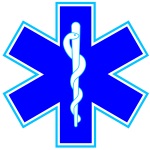Cold Emergencies: Difference between revisions
From Protocopedia
Created page with "==Section 5 -MEDICAL 5.06== ===ENVIRONMENTAL COLD EMERGENCIES=== '''FROSTBITE:''' '''INITIAL MEDICAL/[[Initial Trauma Assessment and C..." |
|||
| Line 1: | Line 1: | ||
==Section 5 -MEDICAL 5.06== | ==Section 5 -MEDICAL 5.06== | ||
=== | ===COLD EMERGENCIES=== | ||
'''FROSTBITE:''' | '''FROSTBITE:''' | ||
Revision as of 22:19, 1 April 2012
Section 5 -MEDICAL 5.06
COLD EMERGENCIES
FROSTBITE: INITIAL MEDICAL/TRAUMA CARE (2.01/2.02).
- Remove wet garments and move patient to a warm environment ASAP.
- Elevate affected part and cover with loosely applied, dry, sterile dressings.
- If ALS required: support airway, cardiac monitoring, IV, O2 saturation and end-tidal CO2
- Refer to ANALGESIA / SEDATION PRACTICE PARAMETERS (2.04).
- MORPHINE SULFATE 2 mg slow IVP, IO or IN every 2 minutes until pain relief achieved Contraindicated if systolic BP <90. IM administration may also be considered.
SYSTEMIC HYPOTHERMIA:
- Mild / moderate 95-90 degree F. Conscious or altered sensorium with shivering.
INITIAL MEDICAL CARE (2.01):
- OXYGEN @ 100% via NRB mask.
- Warm IV fluids using hot packs.
- Remove wet clothing and protect patient against heat loss and wind chill.
- Place patient in horizontal position avoiding rough movement and excess activity.
- Completely dry patient and cover patient with insulated blanket.
SEVERE SYSTEMIC HYPOTHERMIA:
- Temperature of 90 Degrees F or less.
- Patient may appear uncoordinated with poor muscle control or stiff, simulating rigor mortis.
- There will be NO shivering.
- Sensorium: confused, withdrawn, disoriented, comatose.
INITIAL MEDICAL CARE (2.01):
- OXYGEN @ 100% via NRB mask or assist with BVM.
- DO NOT INTUBATE UNLESS PATIENT IS APNEIC.
- Warm IV tubing and OXYGEN tubing with hot packs.
- Refer to appropriate Practice Parameters.
- Refer to Systemic Hypothermia.
- Administer no more than 3 defibrillations until re-warmed.
